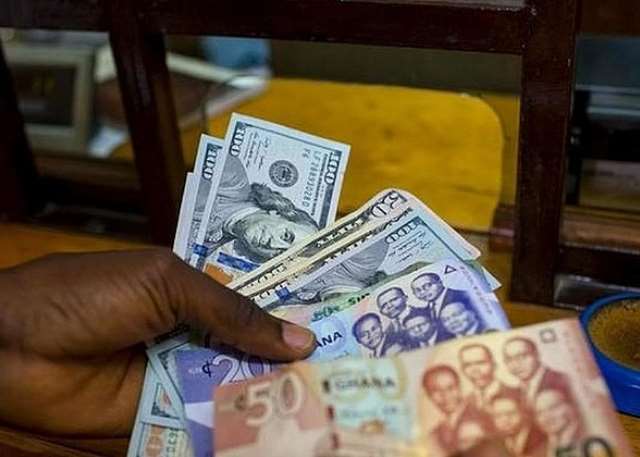The Ghanaian cedi is once again facing a depreciation crisis, marking a troubling start to the year for the nation’s currency. After a period of relative stability in the latter months of 2024, the cedi has begun a downward slide against the US dollar, losing ground daily in January. This renewed vulnerability comes as demand for the US dollar surges, outstripping supply and placing intense pressure on the cedi. The interbank exchange rate has deteriorated from a range of GH¢14.75 to GH¢14.82 per dollar at the start of the year to between GH¢15.02 and GH¢15.10 by mid-January, signaling a worrying trend of devaluation. Market analysts predict a continued decline, anticipating further strengthening of the dollar against the cedi given the persistent dollar liquidity crunch and unrelenting demand for the greenback. This precarious situation underscores the challenges facing Ghana’s economy and necessitates urgent action from the government and the central bank.
The cedi’s current struggles echo a historical pattern of seasonal weakness in the first quarter of the year, particularly in January. This recurring depreciation, often extending into March, poses a significant threat to Ghana’s economic stability. The consequences of unchecked currency devaluation are multifaceted and far-reaching. A weakening cedi fuels inflationary pressures, driving up the cost of imported goods and services. This, in turn, erodes purchasing power and impacts the standard of living for Ghanaians. Furthermore, the nation’s public debt burden, often denominated in foreign currencies, escalates as the cedi loses value, creating a vicious cycle of debt accumulation. This adds further strain on government finances and limits the resources available for crucial investments in development and social programs. The cyclical nature of this depreciation underscores the need for proactive and sustainable solutions to address the underlying structural issues contributing to the cedi’s vulnerability.
While global market fluctuations can impact the cedi’s performance, the primary driver of the current depreciation is the persistent imbalance between dollar demand and supply within Ghana. Even a temporary weakening of the US dollar on the international market, such as the one observed following the delay of planned US tariffs, provides only fleeting relief for the cedi. The underlying demand pressures quickly reassert themselves, negating any short-term gains. This highlights the need for domestic policy interventions that address the root causes of the dollar shortage and strengthen the cedi’s resilience to external shocks. Reliance on transient global market movements is clearly insufficient to ensure long-term currency stability.
The Ghanaian government and the Bank of Ghana must act decisively to stem the tide of cedi depreciation. Failure to do so risks further damage to the economy and could embolden currency speculators, exacerbating the problem. The current situation demands a multifaceted approach involving both short-term interventions and long-term structural reforms. Immediate action is required to address the dollar liquidity crunch and stabilize the exchange rate. This could involve renewed interventions by the central bank, injecting dollars into the market to meet the excess demand. However, such measures should be considered as temporary fixes while more sustainable solutions are implemented.
Beyond short-term interventions, the government must address the underlying structural factors contributing to the chronic dollar demand. One potential strategy involves diversifying the economy and promoting export-oriented industries. By increasing export earnings, Ghana can boost its foreign currency reserves and reduce its reliance on imports, thereby easing pressure on the cedi. Furthermore, exploring alternative means of settling international transactions, such as using gold instead of dollars for repatriating corporate profits, could help reduce dollar demand and mitigate the cedi’s decline. This unconventional approach could provide a valuable tool for managing currency pressures.
The incoming government faces a significant challenge in addressing the cedi’s depreciation. Restoring confidence in the currency and stabilizing the exchange rate is crucial for fostering a conducive business environment and promoting economic growth. This requires a comprehensive and coordinated approach involving monetary policy, fiscal discipline, and structural reforms aimed at strengthening the Ghanaian economy’s resilience and reducing its dependence on foreign currency. The success of these measures will determine the long-term health of the cedi and the overall prosperity of the Ghanaian economy. Delaying action will only deepen the crisis, further destabilizing the economy and jeopardizing future prospects.


